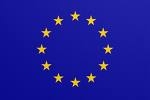PARIS -- On July 1, France will assume the rotating presidency of the European Union, a role it will exercise for the next six months. It's a moment that French President Nicolas Sarkozy has been preparing for since last year, and anxiously awaiting since at least January, when his popularity among French voters suddenly plummeted. With the impact of his domestic reforms stymied by the increased cost of fuel and food commodities, and his image tarnished by personal excesses and professional lapses, Sarkozy was counting on using the parallel track of the EU presidency to reinject some dynamism into his flagging first term in office. But as he himself once observed, political success depends on a combination of determination, competence and luck. And if Ireland's rejection of the Lisbon Treaty just weeks before the French EU presidency is any indication, Sarkozy's luck might not have turned yet. Paris' immediate reaction to the Irish vote was to avoid either "dramatizing" or "minimizing" its significance. In practical terms, that meant that while the solution to the Irish problem might not yet be clear, the response to it is: concrete projects and concrete results, to demonstrate that Brussels can respond to Europeans' needs. The approach fits nicely with France's already announced goals for the EU presidency, which, although ambitious, had for months been portrayed in modest, almost workmanlike terms. In typical Sarkozy fashion, France's agenda had concentrated on issues where the foundations of a broad understanding are already in place, but where some momentum is needed to generate the political will for an agreement; or else on those where the timeframe for a decision is far enough away as to minimize the impact of any divisive debate. In the former category figure common EU policies for global warming, energy security and immigration; in the latter, initial discussions to orient reforms to the EU's Common Agricultural Policy, set to be revisited in 2013. Straddling the line between the two are Paris' ambitious goals for the Union for the Mediterranean project close to Sarkozy's heart, as well as for European Security and Defense Policy (ESDP).
Sarkozy the European: France’s EU Presidency

